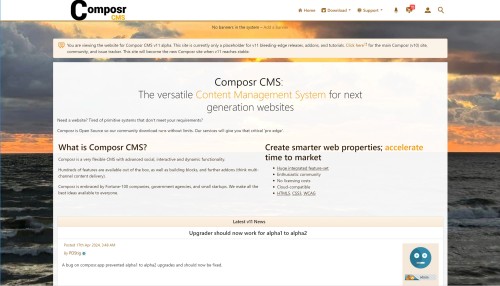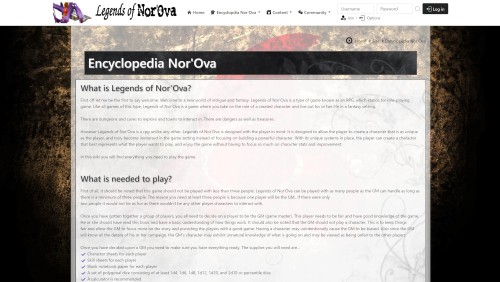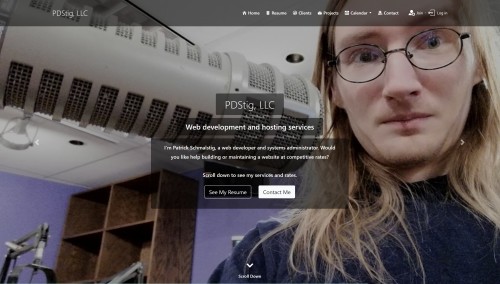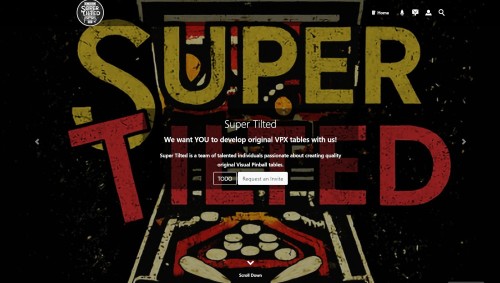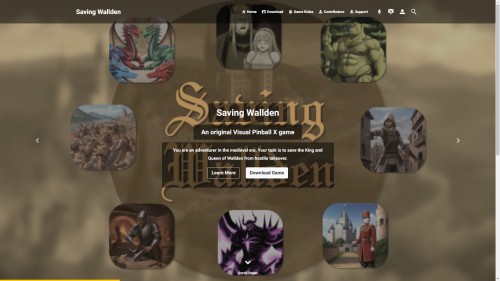Featured Sites: A-Z Index
H
Newest 10 Entries
| Question | What are URL Monikers and how do they benefit SEO? |
|---|---|
| Answer | URL Monikers replace generic numerical IDs in your URLs with descriptive keywords derived from your content titles. For example, instead of yoursite.com/page.php?id=123, you can have yoursite.com/about-us. This makes your URLs more user-friendly and helps search engines understand the topic of each page, improving your search ranking. You can set monikers in the "Metadata" section when adding / editing content. |
| Question | What is an XML Sitemap and why is it important? |
|---|---|
| Answer | An XML Sitemap is a file that lists all the pages on your website, helping search engines understand your site's structure and content. Composr automatically generates a comprehensive sitemap, including forum topics if you are using Conversr. Ensure your system scheduler is enabled for automatic sitemap submission to search engines. You can also manually generate and submit the sitemap if necessary. |
| Question | How can I improve my website's ranking in search engines? |
|---|---|
| Answer | Composr offers various features and best practices to enhance your SEO:
|
| Question | What are the primary metadata elements I should focus on? |
|---|---|
| Answer | While Composr provides extensive metadata options, the key elements to prioritize are:
|
| Question | What is metadata and why is it important for my website? |
|---|---|
| Answer | Metadata is information about your web pages that isn't directly visible to visitors, but is used by search engines and social media platforms to understand and categorize your content. Well-crafted metadata helps search engines properly index your site, making it more likely to appear in relevant search results. It also improves how your website appears when shared on social media, encouraging clicks and engagement. |
| Question | What should I do about offensive or off-topic discussions? |
|---|---|
| Answer | Decide on your moderation approach: balancing viewpoints, adhering to community standards, or focusing on topic relevance. Be prepared to face criticism regardless of your decisions. Establish clear rules and policies to guide user behavior. |
| Question | What resources are available to help me navigate these legal and social challenges? |
|---|---|
| Answer | Composr offers various resources, including tutorials on accessibility, staff management, and general website dos and don'ts. You can also consult external resources like the COPPA website and Wikipedia for more in-depth information on specific laws and regulations. Remember that seeking legal counsel may be necessary for complex situations. |
| Question | What are some social considerations for running a website with community features? |
|---|---|
| Answer | Managing a community involves addressing social issues like child protection, free speech, discrimination, and abuse. Establish clear policies on these matters, including content moderation guidelines and procedures for handling feedback. Consider the diverse personalities and potential vulnerabilities of your users. |
| Question | What are my legal responsibilities regarding illegal content posted by users? |
|---|---|
| Answer | While "safe harbor" laws offer some protection, you are still obligated to take down illegal content upon becoming aware of it. Implement measures like content checks, clear rules prohibiting illegal uploads, and liability disclaimers. The level of responsibility varies depending on the severity of the content, from copyright infringement to more serious criminal content. |
| Question | What steps should I take to make my website accessible? |
|---|---|
| Answer | Website accessibility is essential for inclusivity and may be legally required under anti-discrimination laws. Composr is designed to meet high accessibility standards, but you need to maintain this when creating content or modifying templates. Following WCAG guidelines is crucial, and you can find more information in the accessibility tutorial. |
Top 10 Entries
| Question | What are "breadcrumbs," and how can I customize them? |
|---|---|
| Answer | Breadcrumbs are a navigation aid that shows the user their current location within the website's hierarchy. In Composr, breadcrumbs are customizable through an XML file. You can override default breadcrumbs using "match-keys" to target specific pages and define the desired breadcrumb structure. This allows you to adjust the breadcrumb trail to better match your website's organization. To edit, go to Admin Zone > Structure > Configure breadcrumb overrides. |
| Question | How can I control which panels are displayed on specific pages? |
|---|---|
| Answer | Panels are the areas around your main content area where you can place menus, blocks, and other dynamic elements. You can control panel visibility using display rules within your panel's Comcode: {+START,IF,{$NEQ,{$PAGE},example_page_1,example_page_2,example_page_3}} ... panel content ... {+END} This example prevents the panel from showing on pages named "example_page_1," "example_page_2," and "example_page_3." |
| Question | What is a "page-link," and how does it differ from a URL? |
|---|---|
| Answer | A page-link is a Composr-specific way to reference a page or screen within your website. It's a simplified, local representation of a URL, independent of the URL scheme you might be using. For example, the page-link site:downloads:browse:10 points to the download category with ID 10 in the site zone. This page-link remains consistent even if your URL scheme changes the way URLs are structured. Page-links also do not consider monikers, so if a URL moniker changes, page-links will stay the same. This is a powerful feature as you can use the Comcode [page="page-link"]Page title[/page] tag to generate URLs of local content. And these will always work regardless of URL scheme or moniker. |
| Question | How do menus work in Composr, and can I customize them? |
|---|---|
| Answer | Composr has a flexible menu system that can be customized to your needs.
Menus can be added to panels (sidebars, headers, footers) or embedded directly within Comcode pages. The menu editor provides tools for adding branches, setting captions, tooltips, and URLs, and even defining context-sensitive behavior using "match-keys." |
| Question | What are "zones" in Composr, and what are they used for? |
|---|---|
| Answer | Zones are like sub-sites within your Composr website. They provide a way to organize content and apply different settings, like permissions, themes, and navigation. Some default zones include:
|
| Question | What are the different ways to control access in Composr? |
|---|---|
| Answer | Composr offers a robust permission system with various methods for controlling access:
|
| Question | What happens when I add a new usergroup to a third-party forum integrated with Composr? |
|---|---|
| Answer | If you are not using Conversr as your forum, Composr won't automatically assign any permissions to the new usergroup. To rectify this, you can use the "Absorb usergroup-permissions" feature in the Admin Zone. This tool allows you to copy the permissions from an existing usergroup to the newly created one, ensuring consistent access and functionality. |
| Question | What are some security considerations regarding super-moderators and super-administrators? |
|---|---|
| Answer | While super-moderators have extensive access to manage your site, certain sensitive privileges are reserved for super-administrators. This includes the ability to impersonate other users, execute arbitrary code, and view private content. These restrictions help prevent potential privilege escalation and ensure the overall security of your website. Exercise caution when granting super-moderator status and trust only reliable individuals. |
| Question | What are some useful tools for debugging permission issues? |
|---|---|
| Answer | Composr provides a couple of tools to help pinpoint permission problems:
|
| Question | How can I test if my permission settings are working correctly? |
|---|---|
| Answer | Composr's "SU" feature allows administrators to temporarily assume the identity of another user, enabling you to experience the site as they would. Simply enter the desired username in the "SU" box in the footer. You can also use "Guest" to browse as an unauthenticated visitor. Remember that using "SU" doesn't accurately reflect online status and retains administrator access to sensitive areas. |


